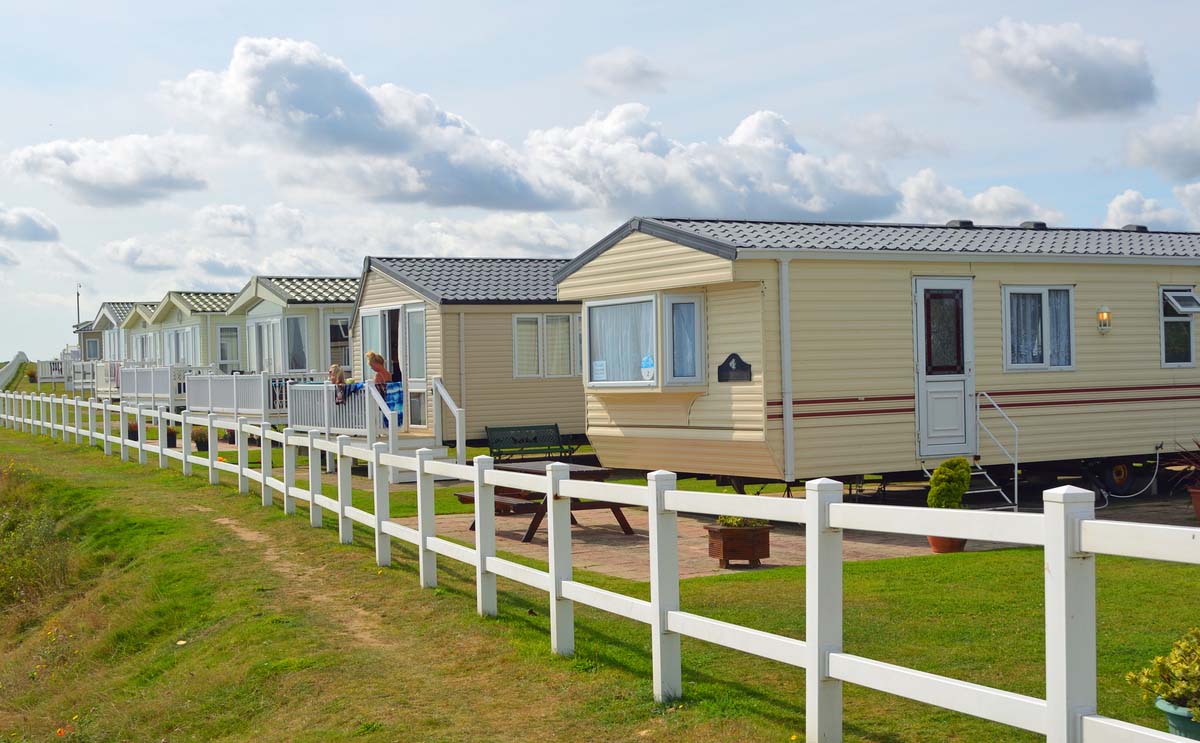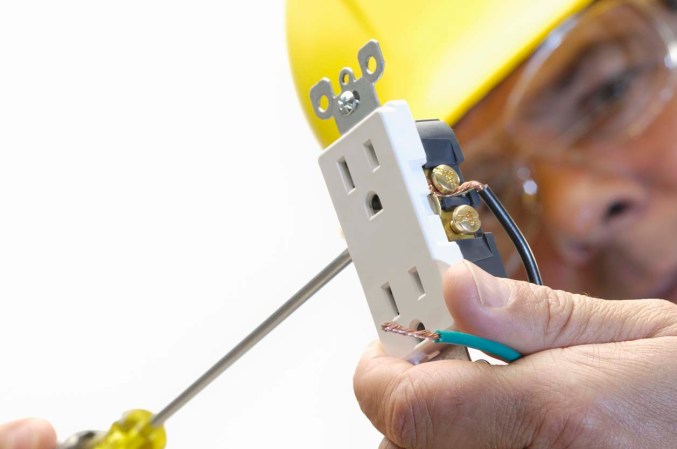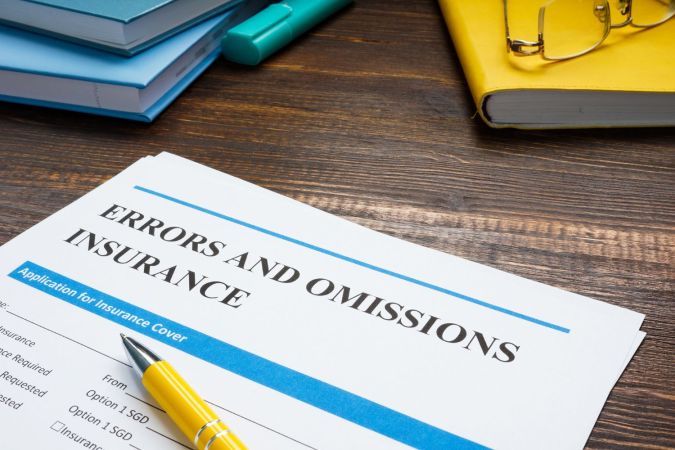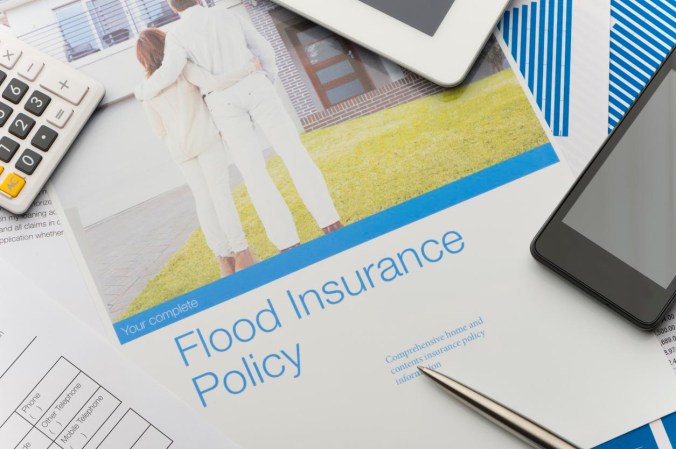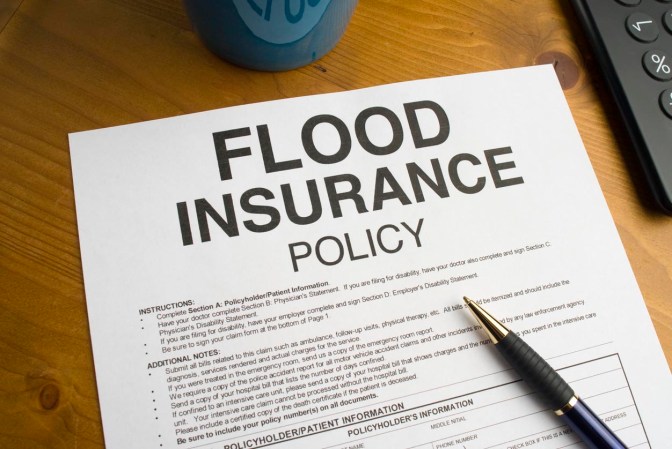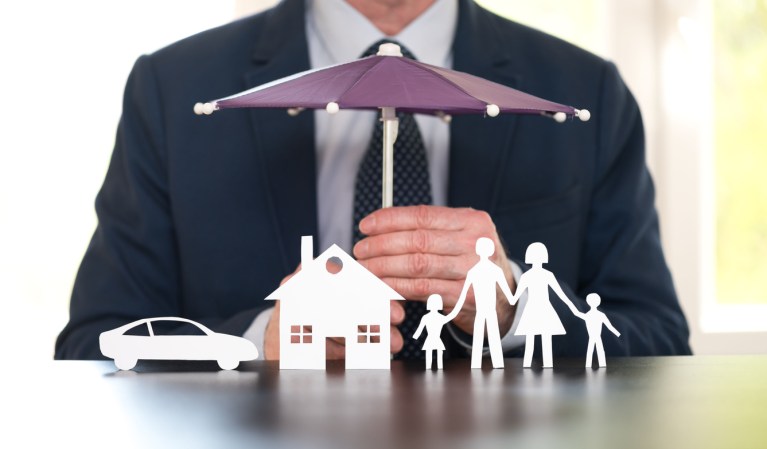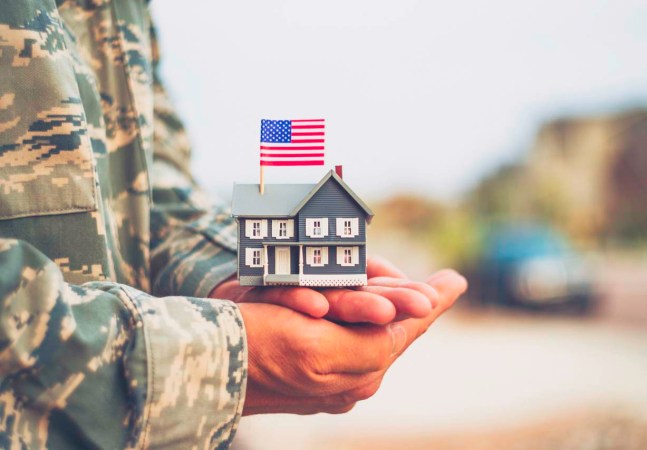We may earn revenue from the products available on this page and participate in affiliate programs. Learn More ›
Highlights
- Mobile home insurance costs can range between $250 and $1,500 per year, with an annual average cost of $1,307.
- The total cost of a mobile home insurance policy will depend on the size of the home and its replacement value, personal property and liability coverage limits, and any endorsements added to the policy, among other factors.
- Mortgage lenders financing the purchase of a mobile home may require borrowers to insure the property with dwelling coverage. In addition, mobile home communities may require residents to carry insurance for their property as well.
- Homeowners may be able to save money on their mobile home insurance policy by adjusting their deductible or coverage limits, taking advantage of available discounts, and getting quotes from multiple insurance providers to compare rates.
Mobile homes offer affordability and portability, which makes them great options for anyone living on a tight budget as well as for those who want the flexibility to move their home with them in the event of a life or job change. They’re also ideal for those who live full time in a home in one location but want a home base elsewhere, perhaps near aging family members or a vacation destination. Owners of mobile homes may not realize that their homes need to be insured just as any single-family house would, so insurance for mobile homes is an important consideration for those who own one.
Mobile home insurance policies list the covered perils, which often include wind, weather, fire, lightning, vandalism, and theft. It’s important to note that mobile home insurance policies are policies of inclusion, which means that if the peril is not actually and specifically listed in the policy, it’s not covered, period. Flood and water damage are not typically covered under a standard policy. Despite those potential exclusions, mobile home insurance can offer financial protection and peace of mind to homeowners in the event that the home or their belongings are damaged or destroyed by a covered peril.
Mobile home insurance cost depends on many factors including the age and condition of the home, coverage options selected, the amount of insurance purchased, and the deductible, for starters. Policyholders can typically expect to pay between $250 and $1,500 per year for mobile home insurance, but total costs may lean toward the higher end of that range. On average, homeowners pay $1,307 each year to insure their mobile homes.
Homeowners can shop around with the best mobile home insurance companies to help them find the right coverage at an affordable price. They can also consider starting by checking with their auto insurance provider, as many companies offer multiple types of policies and will bundle them together to help policyholders save on premiums. For example, homeowners may be able to obtain coverage through Foremost, Assurant, American Family Insurance, or Progressive mobile home insurance policies, among other options.
Factors in Calculating Mobile Home Insurance Cost

Mobile home insurance rates are based on many of the same factors as standard homeowners insurance, but the breakdown of coverage types can be a little different. In general, though, the cost of the policy will largely be based on how big a financial risk the mobile home is to the insurer. The more likely it is that the company will have to pay out costly claims, the higher the premium will be.
Home Replacement Cost
One of the biggest factors in determining premiums for mobile home insurance is the replacement value of the home and its contents. Insuring a mobile home essentially involves paying an annual premium and in return, the insurance company will pay to cover the cost of repair or replacement after a covered loss. Mobile and manufactured homes (which are regarded as the same type of property under federal law) come in a wide range of sizes and degrees of quality and luxury, so the cost to replace the home in the event of a fire or covered loss varies. The larger and more luxurious the home, the higher the cost of insurance will be.
Personal Property Coverage Limits
When homeowners are choosing a mobile home insurance policy, one of the decisions they’ll have to make pertains to how much the maximum payout will be for different components of the policy. Personal property coverage insures the items in the home that are owned by the policyholder, including furniture, clothing, and other personal items. Choosing a high coverage limit that would help a policyholder replace everything they own with new items will result in a higher premium, whereas selecting a lower coverage limit would mean lower premiums—but in the event of a fire, burglary, or other covered loss, the homeowner will likely end up paying more out of pocket to replace damaged or stolen items.
Liability Coverage Limits
Personal liability coverage is an important component of mobile home insurance. Liability insurance protects the policyholder financially from accidents that occur on the property as well as damage or injury caused by the policyholder whether it occurs on or off the property. If a visitor were to trip on a broken board on the stairs and get hurt, liability coverage can help pay for their medical treatment and any legal judgments found against the policyholder (such as if the injured party sues the policyholder for negligence or pain and suffering). The amount of liability coverage included in a standard mobile home insurance policy may not always be sufficient to protect a homeowner’s financial interests. In that situation, it may be a good idea to consider spending a little more to increase liability coverage limits or even purchase a separate umbrella liability policy.
Size of the Home
Single-wide? Double-wide? Triple-wide? The total square footage of the mobile home is part of the base calculation in determining how much it will cost to insure. A single-wide mobile home will often cost much less to insure than double-wide or triple-wide homes because the small size limits the contents and keeps the replacement value low. On the other hand, a triple-wide home will often cost more to insure because the larger size means more furniture, more appliances, and more personal belongings that need coverage. In addition, triple-wide mobile homes are more expensive to replace, impacting home replacement costs and leading to higher premiums for homeowners.
Age and Construction of the Home
Mobile homes built after 1976 are required to meet certain quality standards set by the United States Department of Housing and Urban Development (HUD). However, homes manufactured before that date had no set standard, which could have major ramifications for homeowners looking for older mobile home insurance. These homes will be more expensive—or even impossible—to insure because there’s no way to predict what structural or other flaws they may have. As such, they present a greater financial risk to insurance companies, which can mean higher insurance premiums for homeowners. Newer homes that are built to HUD standards will cost less to insure. Lower insurance costs may provide more incentive for homeowners to consider purchasing a home from one of the best mobile home manufacturers rather than buying an existing mobile home. The condition of the home will also affect the cost: Homes that have been updated and kept in good repair will often score lower rates than those that are aging poorly.
Deductible
When buying a mobile home insurance policy, customers will select a deductible—the amount withheld from an approved claim before the insurance provider will pay out funds. Customers who select lower deductibles will pay higher rates, but they may also receive a larger payout if they file a claim. Those who select higher deductibles will pay lower premiums, but in return they will have more money withheld from payouts on any approved claims.
Endorsements
Endorsements are add-ons to policies that extend coverage to include more perils, raise policy limits, or provide additional protections. For instance, water backup coverage isn’t typically included with mobile home insurance, but policyholders may be able to purchase endorsements that cover water damage caused by overflowing drains, sewer backups, and other instances of flooding water.
Endorsements can also add coverage for particularly valuable jewelry, artwork, sports equipment, electronics, or musical instruments. Each endorsement is priced separately based on the value of the items, and not all companies offer the same endorsements. Therefore, homeowners who have personal belongings of significant value or need to upgrade their coverage for certain possessions may want to consult several insurance companies before purchasing a policy.
Claims History
A policyholder’s claims history works into the calculation of their rates by showing the insurance company how often they have filed claims in the past. If the customer has filed one or more claims in recent years for accidents, injuries, or theft, the insurance company is likely to see them as a higher risk to submit future claims. If a homeowner files a claim after starting a grease fire in their kitchen area, for instance, their insurance company may come to the conclusion that they were somewhat reckless and, as such, a similar event is likely to happen again in the future. An active recent claims history makes it appear that the customer is not taking basic precautions to prevent accidents and injury, and second, could show the insurance company that the customer is more prone to filing claims, both of which make the customer a higher risk and less appealing to the insurer. That customer’s rates are likely to be higher in those scenarios.
Location
The geographic location where the home is located is a key component of the rate calculation. Mobile homes are more subject to damage from wind and weather than most stationary homes, so a home located in an area where natural disasters such as hurricanes, tornadoes, or wildfires are common will be more costly to insure than a home in an area that is more sheltered from wind and driving rain. Mobile homes located in areas facing higher crime rates may also be more expensive to insure as there may be a higher risk of burglaries, vandalism, and property damage.
Discounts
Homeowners looking for cheap mobile home insurance may be interested to know that many insurance companies offer built-in discounts on policies. Some of these are based on occupation: members of the military, educators, first responders, and retired persons are often entitled to discounts. Others are determined by affiliations with organizations such as AAA, AARP, warehouse stores, and other membership-based groups. Some discounts are dependent on actions taken by the homeowner to reduce risk or cost: monitored security systems, original owner, or multipolicy discounts can all be applied to lower the rate, depending on the insurance company. Checking for applicable discounts can help homeowners lower their insurance rates and make mobile home insurance more affordable.
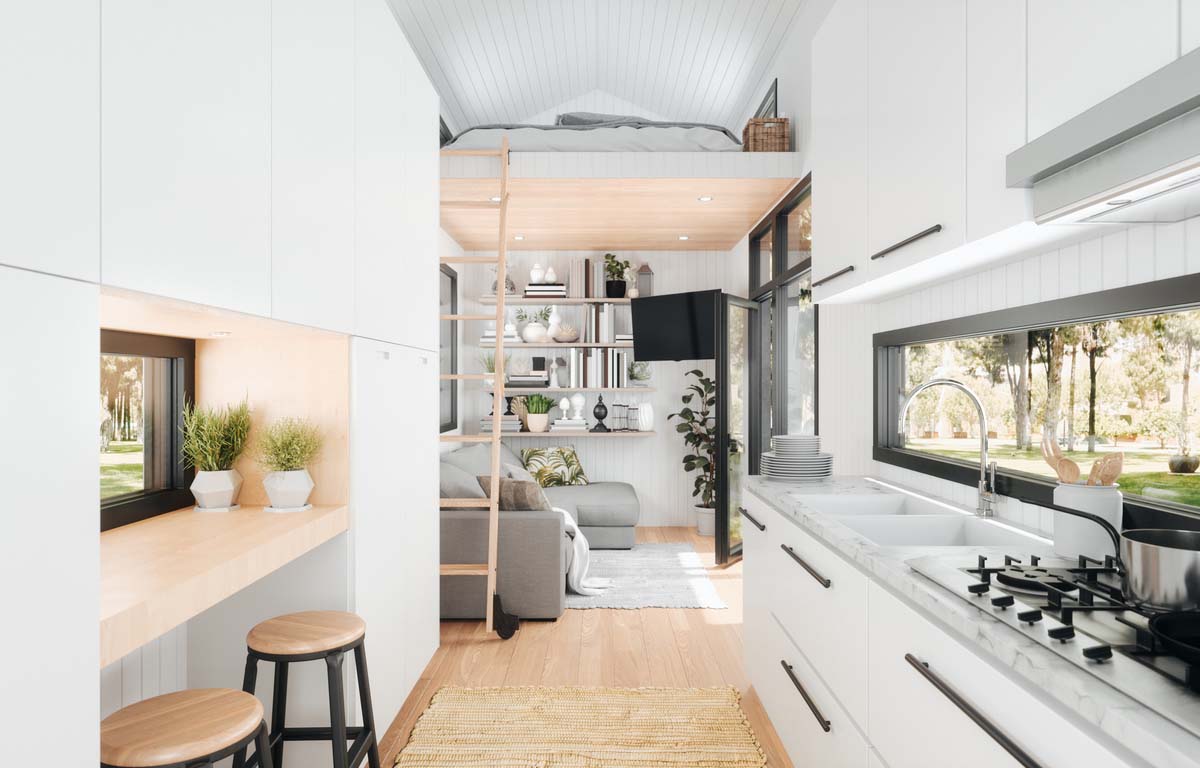
Types of Mobile Home Insurance
There are many different types of homeowners insurance to consider, and mobile home insurance is no exception. Working with an agent who can discuss the different options and packages will help ensure that homeowners get the coverage they need, but it’s helpful to understand the different types of coverage before the shopping starts. One peril that is typically not covered by mobile home insurance is flood damage. Homeowners looking to buy mobile home flood insurance may need to purchase a separate policy through the National Flood Insurance Program (NFIP) or a private insurance company. Those interested in this type of coverage may want to look into a policy from one of the best flood insurance providers.
Also, mobile home insurance policies don’t cover normal wear and tear. For coverage of repairs and replacements to a mobile home that may be required as a result of aging, customers may want to consider one of the best home warranties for mobile homes, which can work hand in hand with a mobile home insurance policy. The insurance policy can cover weather, fire, and criminal damage, as well as liability concerns and some instances of accidental damage, while the warranty can help pay for repairs and replacement on covered systems due to normal wear or system failure.
Dwelling Coverage
This coverage pays for the repair or replacement of the physical structure of the home following a covered peril. This includes the roof, walls, siding, floors, permanently installed flooring and appliances, and decks that are attached to the main structure. If the purchase of the home is financed with a loan, then the homeowner’s lender may require them to carry enough dwelling coverage to pay for a complete replacement of the home in the event of a total loss.
Personal Property Coverage
Personal property coverage protects the policyholder’s belongings including furniture, clothes, collectibles, kitchen equipment, and other personal items. It does not cover cash, legal documents, or bearer bonds, however. Property coverage protects these items against damage caused by covered perils such as fire, hail, or windstorms. It also insures personal property in the event that the policyholder’s belongings are stolen, whether the theft occurs from the home or elsewhere, such as a workplace or school, less the deductible.
Liability Coverage
If a visitor or guest is injured on a homeowner’s property, liability coverage can help pay the medical bills and other related damages. The injury can be a result of a fall (if the homeowner failed to repair a broken banister, for instance), burn, dog bite, or other mishap, but it’s worth noting that if a claim for an injury that may be the result of negligence (a dog bite, falling tree limbs, or ice on the front walk, for example) the insurance company may notify the policyholder that additional claims of that type may be denied.
The insurer does expect the homeowner to keep the property in good shape and up to basic safety standards, and if that doesn’t appear to be the case, claims can be denied. Liability insurance also covers damage that the policyholder accidentally causes elsewhere, such as if the policyholder, a family member, or even a household pet is responsible for injuring someone or causing damage to someone else’s property.
Other Structures Coverage
Garages, storage units, and shelters that are not attached to the home but are on the property owned by the policyholder are covered against damage from covered perils with this type of coverage. While mobile homes may be less likely to have detached structures than single-family homes, other structures coverage often extends to fences and tool sheds that sit on the property.
Do I Need Mobile Home Insurance?
When money is tight, insurance can seem like an additional expense for something that may never be used. This is understandable; many people go through a lifetime of homeownership without ever making an insurance claim, but they dutifully pay their premiums each year. The problem with this logic is that insurance is something that seems unnecessary until it very, very suddenly is. The kinds of events that are covered by mobile home insurance can cause catastrophic damage very quickly and unexpectedly, and the last thing anyone wants to do after a fire races through their home, destroying everything and potentially injuring family members, is to figure out a place to stay temporarily, replace everything they own, and find a new place to live without the benefit of an insurance settlement. This is why mobile home insurance and mobile home renters insurance are critically important. In addition, several entities may require that homeowners carry insurance on their mobile or manufactured homes.
Mortgage Lender Requirements
Every mortgage is a financial risk for the lender. If someone skips out on payments, doesn’t care for their home, or suffers fire or storm damage, the lender will want to recoup some of its losses. As such, most mortgage lenders require that their customers carry a mobile home insurance policy for the life of the mortgage—often with enough dwelling coverage to pay for a complete replacement if necessary.
Mobile Home Community Requirements
Many mobile home parks and communities require that those residing in the area carry mobile home insurance or mobile home renters insurance. If residents carry insurance, it reduces the community’s liability if someone is injured or damage is caused within the confines of their property. This way, the community can use its own insurance to clean up and repair the property without being held responsible for the personal property and building coverage of their residents.

How to Save Money on Mobile Home Insurance
Homeowners can take several steps to save money on their mobile insurance premiums without sacrificing the quality or scope of their coverage. This may take a little extra effort on the part of the homeowner, but it may be worth it to lower insurance costs.
- Shop around for several mobile home insurance quotes to compare rates across multiple policies with similar coverage. It’s important to review each policy and provider closely to find the right policy terms without paying for unnecessary coverage.
- Choose a higher deductible, as insurance companies will typically provide lower rates in exchange for a higher deductible.
- Select a lower coverage limit, which will lower insurance premiums. However, policyholders should be careful not to reduce their coverage to the extent that a covered loss would cause financial hardship.
- Ask insurance companies about any available discounts. Insurance providers may offer lower rates to retired policyholders, homeowners who have installed security systems, customers who bundle their insurance with other policies, and members of certain professional associations and other organizations, among other discount opportunities.
Questions to Ask About Mobile Home Insurance
There are a lot of decisions for homeowners to make when choosing a mobile home insurance policy. Working with an agent, either independent or affiliated with a company the homeowner has selected, can make the process easier since this pro will be able to answer questions and help guide policy selections. When speaking with an insurance agent, homeowners may want to consider asking some of the following questions regarding coverage for mobile homes.
- How much coverage do I need for my home?
- What types of mobile home insurance coverage do I need?
- What endorsements are available, and which ones make sense for my property?
- Do I need separate flood insurance?
- Can I add jewelry, artwork, or other valuables to my coverage?
- What is not covered under this policy?
- What discounts are available that can help lower my insurance premiums?
FAQs
Beginning the search for mobile home insurance can be overwhelming, especially since many websites are geared primarily toward traditional homeowners insurance policies rather than mobile home insurance. While both types of coverage are similar in many respects, those who own mobile homes will likely have their own specific concerns and questions. Some of the most common questions homeowners have regarding coverage for their mobile homes are addressed below to help them feel more confident about making an informed decision with their insurance.
Q. Are mobile homes more expensive to insure?
Despite the lower replacement cost, mobile homes may be more expensive to insure than stationary homes in some cases. The reason is fairly simple: Standard homeowners insurance policies insure homes that are affixed to a poured foundation, piers, or slab foundation. Mobile homes are lighter, smaller, and not affixed to the ground, which means that wind, falling trees, and fire can do much greater damage to a mobile home in a short period of time than they can to a house with a foundation. In addition, mobile homes tend to be targets of vandalism by criminals who think they’ll be easy to break into or vandalize for fun.
How much is mobile home insurance compared with standard homeowners insurance? It’s difficult to compare precisely because there are so many variables, but on average, the cost of mobile home insurance is more expensive per square foot than the cost of homeowners insurance for a traditional house. That being said, because stationary homes are much larger and present much higher replacement costs, a standard homeowners insurance policy may still be more expensive overall. While mobile home insurance costs $1,307 per year on average, the average cost of homeowners insurance is higher at $1,687 per year.
Q. Can you get flood insurance on a mobile home?
Yes, you can get coverage with a flood insurance policy that is separate from the mobile home insurance policy. The NFIP offers flood insurance for mobile and manufactured homes that covers the physical building and the contents against damage from flooding. Some policies also cover separate buildings and fences. Certain private insurers also offer flood insurance for mobile homes, but not all, and it’s important to check the policy and make sure it includes the level of flood coverage needed.
Q. How much mobile home insurance do you need?
Most people need coverage that’s substantial enough to help them get back on their feet after a major disaster and replace specific items as soon as possible. Lenders may require homeowners to purchase enough dwelling coverage to pay for a complete replacement of the home’s structure, but the amount of liability and personal property coverage necessary will depend on a policyholder’s particular financial situation.

